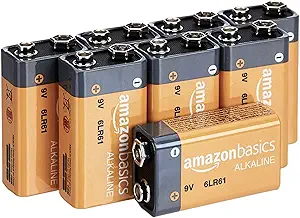The Ultimate Guide to Buying Batteries: Types, Key Considerations, Features, Prices, Tips, and FAQs
Overview
Batteries are an essential part of our daily lives, powering everything from our smartphones to our cars. With so many different types of batteries available, it can be overwhelming to choose the right one. This guide will provide you with all the information you need to make an informed decision when purchasing batteries.
Types
1. Alkaline batteries: These are the most common type of batteries and are used in a wide range of devices, including remote controls, flashlights, and toys. They are affordable and have a long shelf life.
2. Lithium-ion batteries: These are rechargeable batteries that are commonly used in smartphones, laptops, and other portable electronics. They have a high energy density and can hold a charge for a long time.
3. Nickel-metal hydride (NiMH) batteries: These are rechargeable batteries that are commonly used in digital cameras and other high-drain devices. They have a lower energy density than lithium-ion batteries but are more affordable.
4. Lead-acid batteries: These are commonly used in cars, boats, and other vehicles. They are heavy and require maintenance, but they are affordable and have a long lifespan.
Key Considerations
1. Device compatibility: It is important to choose a battery that is compatible with your device. Check the manufacturer's specifications to ensure that you are purchasing the correct battery.
2. Battery life: Consider the battery life of the device you will be using the battery in. If you need a battery that will last a long time, choose a battery with a high capacity.
3. Rechargeability: If you plan to use your battery multiple times, consider purchasing a rechargeable battery.
4. Environmental impact: Consider the environmental impact of the battery you are purchasing. Look for batteries that are recyclable or made from sustainable materials.
Features
1. Capacity: The capacity of a battery is measured in milliampere-hours (mAh) and determines how long the battery will last. Choose a battery with a high capacity for longer battery life.
2. Voltage: The voltage of a battery determines how much power it can deliver. Check the manufacturer's specifications to ensure that you are purchasing a battery with the correct voltage.
3. Self-discharge rate: Some batteries lose their charge over time, even when not in use. Choose a battery with a low self-discharge rate for longer shelf life.
Prices
Battery prices vary depending on the type, capacity, and brand. Alkaline batteries are the most affordable, while lithium-ion batteries are more expensive. Rechargeable batteries are generally more expensive than non-rechargeable batteries but can save you money in the long run.
Tips
1. Store batteries in a cool, dry place to extend their shelf life.
2. Remove batteries from devices that will not be used for an extended period of time.
3. Use the correct charger for rechargeable batteries to avoid damage.
4. Consider purchasing a battery tester to determine when your batteries need to be replaced.
FAQs
Q: Can I use any brand of battery in my device?
A: It is recommended to use the brand of battery recommended by the device manufacturer to ensure compatibility and optimal performance.
Q: Can I recharge non-rechargeable batteries?
A: No, attempting to recharge non-rechargeable batteries can be dangerous and cause damage to the battery and device.
Q: How do I dispose of batteries?
A: Check with your local recycling center for guidelines on how to properly dispose of batteries. Some batteries can be recycled, while others need to be disposed of in a hazardous waste facility.
Q: How do I know when my rechargeable battery needs to be replaced?
A: Rechargeable batteries have a limited lifespan and will eventually need to be replaced. Signs that your battery needs to be replaced include reduced capacity and longer charging times.














